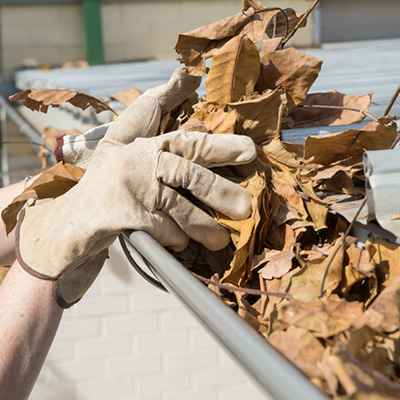Protecting your business from bushfires
- Bushfires can have a short and long-term impact on your business
- There’s potential for bushfires to directly affect your premises and indirectly impact business continuity – have a plan to manage both
- By taking proactive steps you can help mitigate the risk bushfires pose to your business
As a business owner, most days are devoted to managing what’s in your control. However, as experience has shown us only too well, events that are out of our control – including bushfires – can happen all too easily and often without warning.
By planning ahead and mitigating risks, a business can maintain some control in the event that a bushfire strikes.

Mitigating the bushfire risk to your premises
One of the first steps in getting your business ready for bushfire season is preventative maintenance. It’s good practice to keep the roofs and gutters of your business premises clear of natural debris, which can be extremely flammable. If you’re not confident about being on a roof, consider hiring a professional to help. Keep combustible materials in flameproof containers away from the building and ensure any gaps in floors and roofs are filled to prevent burning embers from finding a way through.
Installing fireproof window shutters, non-combustible window frames and doors, and toughened glass can be effective in delaying the spread of a fire, which can make a valuable difference in terms of the amount of damage caused to your property.
Ensure all emergency exits are accessible and in working order and have a bushfire action plan in place – one that’s tailored to your business and communicated regularly to staff – to ensure you and everyone else knows how to respond in case of an emergency.
Mitigating the bushfire risk to your business with a continuity plan
Bushfires can cause indirect damage to your business regardless of whether your premises are affected by fire damage.
Creating a business continuity plan is vital and will help identify weaknesses in your business’ ability to carry on should you be affected in any way.
“Every business should have a business continuity plan,” says Dave Burnage, Head of SME Portfolio Management at QBE. “Identify the risks you face and work out what you need to do to either mitigate that risk or what you’ll do in the event of that risk occurring.
“That way, when something does happen, you don’t have to think on your feet – you’ve already thought about it, and you know what you’re going to do.”
Risks that could arise from a bushfire that can be captured in your business continuity plan include, the path to market – for example, if you operate from a physical store, would you be able to quickly move your business to another location? If not, consider building an online presence and a customer base ahead of time.
You should consider how you would continue operations if your supplier was affected by bushfires – for example, identify alternative providers. It’s also important to make sure all of your business information (especially your accounts ledger and asset register) is stored securely in the cloud, or similar, so you can access it from any location.

Review your business risks and insurance policies
When it comes to damage from bushfires, underinsurance is a common problem – meaning business owners have insurance but not enough cover to replace everything they may lose.
“A lot of businesses and farms are affected by bushfires,” says Burnage. “Some customers may take out machinery cover of, for example, $10,000, thinking that at any one time, only one item would be stolen or damaged, but they lose everything.”
“In some instances, clients have not had their business premises valued for a while, or genuinely underestimate what the replacement costs may be for their property.”
Additional costs of rebuilding business premises, such as demolition and clearance – as well as rebuilding to new construction code, depending on your location’s Bushfire Attack Level – are often overlooked and should be taken into account.
Speak with your broker to ensure everything you use for your business is adequately covered – including things like outbuildings, fences, essential machinery, and vehicles.
Considerations for protecting your business from bushfires – a checklist
▢ Clear debris and store flammable materials safely
Clean debris like leaves and sticks from your roofs and gutters. Store flammable materials such as wood, gas, petrol and paint well clear of buildings. Consider hiring professional help if needed.
▢ Make sure there is clear access to all external areas of your premises
This will allow fire fighters to quickly and effectively access and protect your property from an advancing bushfire.
▢ Take an inventory and ensure you can access it remotely if a bushfire strikes
This will make the claims process and required coordination with your customers and suppliers much easier.
▢ Create or review your business continuity plan
Consider alternate ways to keep your operations up and running (such as developing an online presence) in the event that you can’t work from the physical premises.
▢ Review your motor and machinery cover
Bushfires can easily damage a whole fleet of vehicles or machinery, so make sure to extend your cover beyond just the one asset.
▢ Review your insurance policies
Ensure your buildings (and outbuildings, fences and gates) are covered for current rebuild costs, demolition and clearance expenses. Ensure all land, stock, equipment and contents are covered, too.
▢ Consider business interruption cover
The time to get your business back up and running may be longer than you think, and can affect your suppliers and customers, as well as you. Having business interruption cover could help you get through any unforeseen disruptions.
▢ Create your bushfire readiness plan and keep it handy
Detail what you’ll do, and when and where you’ll move yourself and your employees, should you be impacted by a bushfire. Ensure all your key documents are stored in the cloud for remote access. Your state’s fire service has downloadable bushfire action plans: New South Wales, Queensland, Victoria, South Australia, Western Australia, Northern Territory, Australian Capital Territory, Tasmania.
▢ Be prepared to leave at a moment’s notice
Bushfires can change direction or increase in ferocity in an instant. Be prepared to leave immediately – your life is more important than any of your material assets.
▢ Download your state’s fire alert app and monitor weather conditions
Be aware of fires in your local area so you can watch and act. Download your state’s app, and turn notifications on. You should also consider keeping up-to-date with Australia’s weather patterns to be in the know when it comes to the severe conditions they can cause.
Always be prepared
The fact is that bushfires can occur almost anywhere, even in areas far from bushland, so it’s best to be prepared. To talk about your insurance needs, reach out to your broker or fill in our online enquiry form today.









